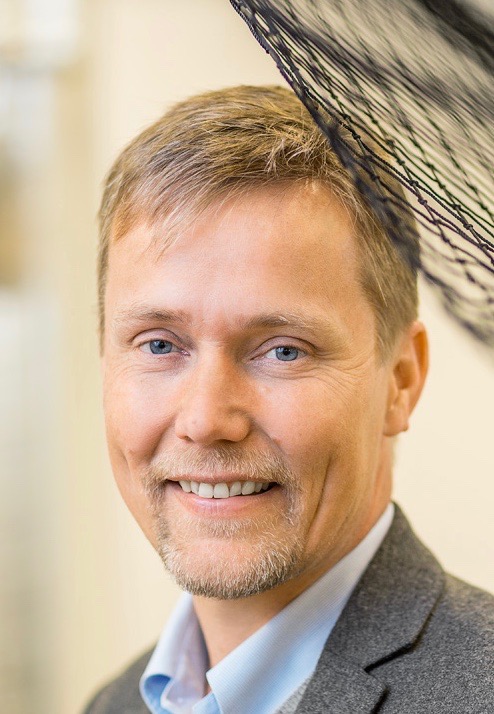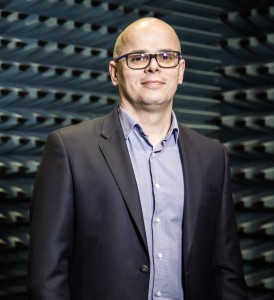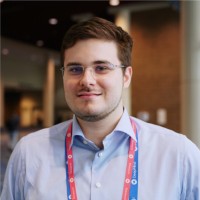Keynotes & plenary talks
Traffic control using automated vehicles: distributed sensing, actuation, and learning

Short Biography
Karl H. Johansson is Swedish Research Council Distinguished Professor in Electrical Engineering and Computer Science at KTH Royal Institute of Technology in Sweden and Director of Digital Futures. He received MSc degree in Electrical Engineering and PhD in Automatic Control from Lund University. He has held visiting positions at UC Berkeley, Caltech, NTU among other institutions. His research interests are in networked control systems and cyber-physical systems with applications in transportation, energy, and automation networks, areas in which he has co-authored more than 800 journal and conference papers, and supervised some 100 postdocs and PhD students. He is President of the European Control Association and member of the IFAC Council, and has served on the IEEE Control Systems Society Board of Governors and the Swedish Scientific Council for Natural Sciences and Engineering Sciences. He has received several best paper awards and other distinctions from IEEE, IFAC, and ACM. He has been awarded Distinguished Professor by Swedish Research Council, Wallenberg Scholar with the Knut and Alice Wallenberg Foundation, Future Research Leader from the Swedish Foundation for Strategic Research, the triennial IFAC Young Author Prize, and IEEE Control Systems Society Distinguished Lecturer. He is Fellow of the IEEE and the Royal Swedish Academy of Engineering Sciences.
Abstract
While the long-term benefits of introducing connected and automated vehicles into road traffic are widely understood to be revolutionary, there is much debate about whether its early stages will cause an increase in congestion and issues related to human-driven vehicles. Notwithstanding, connected vehicles acting as mobile sensors and actuators could enable traffic predictions and control at a scale never before possible, and thereby a much more efficient use of the available and future road infrastructure. In this talk, we will present how new freight transport technology based on automated truck platoons can be the backbone for such a system. Some fundamental theoretical and experimental results on the control and coordination of truck platoons will be presented. How such platoons influence traffic flows by acting as a moving bottleneck will be discussed together with traffic models suitable for designing novel traffic control systems. It will also be argued that these models are possible to learn automatically from data gathered by platoons acting as traffic flow sensors. Experiments show that relatively few connected vehicles are enough to mitigate congestion and improve traffic conditions significantly. The presentation is based on joint work with many students and postdocs at KTH and researchers at Swedish automotive industry.
Worker-Robot Relations – shaping the future of physical work

Short Biography
Prof. dr. ir. David A. Abbink (1977) received his MSc. degree (2002) and PhD degree
(2006) in Mechanical Engineering from Delft University of Technology.
He founded the Delft Haptics Lab and the Human-Robot Interaction group; and co-
founded the department of Cognitive Robotics at Delft University of Technology. His
research interests include human factors, human-robot interaction, haptic assistance,
sensorimotor control, shared control, cybernetics and shaping the future of robot-
assisted work – and published over a hundred scientific articles in these areas.
Research: His PhD thesis on haptic assistance for car-following was awarded the best
Dutch Ph.D. dissertation in movement sciences (2006), and contributed to the market
release of Nissan’s Distance Control Assist system. David received two prestigious
personal grants: VENI (’10-‘14) and VIDI (’15-’20). He was co-PI on the H-Haptics
programme (’11-’17), where 16 PhD students and 3 postdocs collaborated on designing
human-centered haptic shared control for tele-robotics, across various application
domain. His research on human-automation interaction has received funding from major
industry partners such as Nissan, Renault, Boeing. He is founding member and
scientific director of AiTech, that aims to design for appropriate moral responsibility over
systems with autonomous capabilities. He is founder and scientific director of the
FRAIM research and innovation centre for worker-robot relations, which aims to
responsibly shape worker-robot relations with and for the people on the workfloor.
David is an IEEE senior member. He served as associate editor for IEEE Transaction
on Human-Machine Systems, and IEEE Transactions on Haptics, and currently serves
as editor of IJRR.
Education: David was voted best teacher of his department for seven consecutive
years, best teacher of his faculty twice, and received an international open courseware
award for his course “The Human Controller”.
Private Life: David has always worked 4 days a week, to ensure enough time for the
other pleasures in life, such as drumming in rock bands, cooking, traveling and being a
dad.
Abstract
In a time of complex societal challenges around an ageing population and mounting labour shortages, we need to find
new ways to live, consume and work. Technological developments may help to address these challenges, but physical
work performed by people will remain important for vital sectors such as flexible manufacturing, healthcare and
logistics.
A new generation of robots presents the opportunity to shape the future of physical work in a meaningful way. Cognitive
robots, with their learning capabilities for moving and manipulation, will respond to and learn from workers, while
workers will learn from and adapt to these new robots on the workfloor - creating new opportunities for workplace
innovation, while increasing risks of misalignment. Understanding how this reciprocal learning evolves requires a new
relational perspective that jointly considers processes of change and learning between robots, workers, organisations
and other stakeholders. These emerging worker-robot relations (WRRs) hold an unprecedented potential for societal
impact. So far, WRR development has been left to market pull and technology push, and the unintended consequences
for work and worker wellbeing will only be identified in hindsight.
David will present his perspective on the future of work and very recent work he is doing in leading a consortium of
roboticists, HRI experts, designers, psychologists, organisational scholars and ethicists. Together they aim to proactively
maximise the potential of increasing capabilities in cognitive robots for a meaningful, just and viable future of work.
Satellite Connectivity: 6G Wireless and Distributed Intelligence

Short Biography
Petar Popovski is a Professor at Aalborg University, where he heads the section on Connectivity and a Visiting Excellence Chair at the University of Bremen. He received his Dipl.-Ing (1997) and M. Sc. (2000) degrees in communication engineering from the University of Sts. Cyril and Methodius in Skopje and the Ph.D. degree (2005) from Aalborg University. He is a Fellow of the IEEE. He received an ERC Consolidator Grant (2015), the Danish Elite Researcher award (2016), IEEE Fred W. Ellersick prize (2016), IEEE Stephen O. Rice prize (2018), Technical Achievement Award from the IEEE Technical Committee on Smart Grid Communications (2019), the Danish Telecommunication Prize (2020) and Villum Investigator Grant (2021). He is currently an Editor-in-Chief of IEEEE JOURNAL ON SELECTED AREAS IN COMMUNICATIONS and Chair of the IEEE Communication Theory Technical Committee. He was a Member at Large at the Board of Governors in IEEE Communication Society, as well as the General Chair for IEEE SmartGridComm 2018 and IEEE Communication Theory Workshop 2019. His research interests are in the area of wireless communication and communication theory. He authored the book "Wireless Connectivity: An Intuitive and Fundamental Guide", published by Wiley in 2020.
Abstract
Wireless mobile generations until 5G have been focused exclusively on terrestrial communications. With the emergence of small satellites and large Low Earth Orbit (LEO) constellations, non-terrestrial networks (NTN) become key components of the upcoming 6G wireless networks. Leveraging the proper constellation design, as well as the necessary communication and processing capabilities, LEO constellations have the ability of providing global coverage, even for low latency Internet services. Due of this, dense constellations of hundreds or even thousands of small satellites flying in LEO are currently under deployment. The first part of the talk will cover fundamentals of satellite constellation design, communications and networking, with a focus on mega constellations in LEO. The second part of the talk will be dedicated to distributed machine learning algorithms that take advantage of the predictable satellite connectivity.
Reasoning Algorithmically: from Toy Experiments to AGI Modules

Short Biography
Petar Veličković is a Staff Research Scientist at DeepMind, Affiliated Lecturer at the University of Cambridge, and an Associate of Clare Hall, Cambridge. Petar holds a PhD in Computer Science from the University of Cambridge (Trinity College), obtained under the supervision of Pietro Liò. His research concerns geometric deep learning—devising neural network architectures that respect the invariances and symmetries in data (a topic he has co-written a proto-book about). For his contributions, Petar is recognised as an ELLIS Scholar in the Geometric Deep Learning Program. Particularly, he focuses on graph representation learning and its applications in algorithmic reasoning (featured in VentureBeat). Petar is the first author of Graph Attention Networks—a popular convolutional layer for graphs—and Deep Graph Infomax—a popular self-supervised learning pipeline for graphs (featured in ZDNet). Petar's research has been used in substantially improving travel-time predictions in Google Maps (featured in the CNBC, Endgadget, VentureBeat, CNET, the Verge and ZDNet), and guiding intuition of mathematicians towards new top-tier theorems and conjectures (featured in Nature, Science, Quanta Magazine, New Scientist, The Independent, Sky News, The Sunday Times, la Repubblica and The Conversation).
Abstract
Neural networks that are able to reliably execute algorithmic computation may hold transformative potential to both machine learning and theoretical computer science. On one hand, they could enable the kind of extrapolative generalisation scarcely seen with deep learning models. On another, they may allow for running classical algorithms on inputs previously considered inaccessible to them.
Over the past few years, the pace of development in this area has gradually become intense. As someone who has been very active in its latest incarnation, I have witnessed these concepts grow from isolated 'toy experiments', through NeurIPS spotlights, all the way to helping detect patterns in complicated mathematical objects (published on the cover of Nature) and supporting the development of generalist reasoning agents.
In this talk, I will give my personal account of this journey, and especially how our own interpretation of this methodology, and understanding of its potential, changed with time. It should be of interest to a general audience interested in graphs, (classical) algorithms, reasoning, and building intelligent systems.
